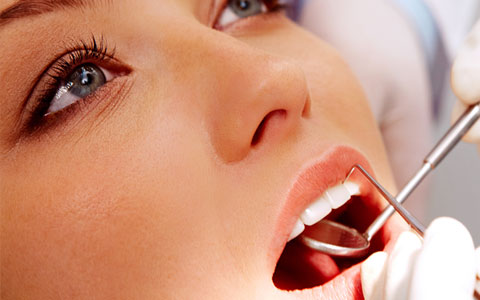Dental Terms
Wisdom teeth - Dentist St. Albert
Wisdom teeth, also known as third molars, are the last set of molars that typically emerge in a person's late teens or early twenties. While these teeth can sometimes be beneficial when they grow in properly and are healthy, more often than not, they pose problems and require removal.
When wisdom teeth do not align correctly, they may take on various positions, such as horizontal alignment, angulation toward or away from the second molars, or inward or outward angulation. Poor alignment of wisdom teeth can lead to crowding or damage to nearby teeth, the jawbone, or nerves.
Wisdom teeth can also become impacted, meaning they are enclosed within the soft tissue and/or the jawbone, or they may only partially break through or erupt through the gum. Partial eruption of wisdom teeth creates an opening for bacteria to enter around the tooth, resulting in infection. This can cause pain, swelling, jaw stiffness, and overall illness. Partially erupted wisdom teeth are also more susceptible to tooth decay and gum disease due to their hard-to-reach location and awkward positioning, which makes brushing and flossing challenging.
How Do I Determine If I Have Wisdom Teeth?
You can consult Dr. Cristina Sovarel & Dr. Ioana Sovarel in St. Albert to assess the positioning of your wisdom teeth. Periodic X-rays may be taken to evaluate the presence and alignment of your wisdom teeth. Based on the evaluation, Dr. Cristina Sovarel & Dr. Ioana Sovarel may recommend a visit to an oral surgeon for further assessment.
Dr. Cristina Sovarel & Dr. Ioana Sovarel in St. Albert may suggest extracting your wisdom teeth even before problems arise. This proactive approach aims to prevent a more painful or complex extraction that might be necessary in the future. Removal is generally easier in younger individuals, as the roots of wisdom teeth are not fully developed, and the bone is less dense. In older individuals, recovery and healing may take longer.
Wisdom teeth are the upper and lower third molars located at the very back of the mouth. They earned the name "wisdom teeth" because they typically emerge when a person is between 17 and 21 years old or older, a period when some wisdom has been gained. Wisdom teeth that are healthy and well-positioned do not typically cause issues.
Wisdom teeth can partially break through the gums, creating a flap of gum tissue that can trap food and lead to gum infections. They can also grow in crookedly or in the wrong direction. In cases where the jaw lacks sufficient space, they may become impacted and unable to fully emerge through the gums. Additionally, proper cleaning around wisdom teeth can be challenging due to their location in the back of the mouth and potential crowding.
What Are the Symptoms of Wisdom Teeth Problems?
Wisdom teeth often do not cause symptoms. However, symptoms that may indicate a need for wisdom tooth removal include:
- Pain or jaw stiffness near an impacted tooth.
- Pain or irritation from a tooth emerging at an awkward angle, causing rubbing against the cheek, tongue, or the top or bottom of the mouth.
- An infected swelling in the gum tissue flap that forms over a partially erupted impacted tooth.
- Crowding of other teeth.
- Tooth decay or gum disease due to insufficient space for proper care of the wisdom tooth and surrounding teeth.
Most issues related to wisdom teeth arise in individuals between the ages of 15 and 25. Few people over the age of 30 develop problems that require wisdom tooth removal.
Dr. Cristina Sovarel & Dr. Ioana Sovarel at Family Dental in St. Albert will conduct an examination of your teeth and gums to identify signs of wisdom teeth emerging through the gum or causing crowding. X-rays may also be taken to assess the current impact or potential future problems related to your wisdom teeth.
Treatment
The most common treatment for problems related to wisdom teeth is extraction, or removal, of the affected tooth. Opinions vary regarding whether to remove wisdom teeth that are not causing symptoms or problems. Oral surgeons often recommend removing wisdom teeth in younger individuals, usually in their early 20s, as the roots of the teeth and jawbone are not fully developed at this stage. In individuals in their late 20s and older, the jawbone tends to harden, and healing may take longer.
